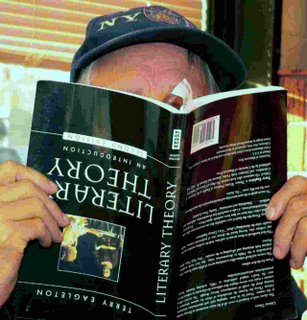If a Book Was Worth the Same Price to Everyone, Poor People Would All Stay Illiterate
What a title for a post! I sometimes surprise myself.
You could declare exactly the opposite: if the value of a book were the same for everyone, all the rich people would stay illiterate.
If you have not caught my drift yet, I am taking a stab at some of the contradictions regarding the buying and selling of books.
You must admit that in many industrialised countries there are outlets for used books that are sold at such low prices that even the poorest resident can afford to purchase a few. With a little effort, reading material in such developed countries can be procured free of charge, in a public library if nowhere else. Yet here in Canada, when I give a poor person a book or magazine with something of specific interest to them, they act as if I were a magician or a saint. At least regarding that one little gift. People rarely ask me how they themselves could find such material on their own for little or no expense.
Today I gave away Spanish editions of two Readers Digests (Selecciones) to a couple people from two different Latin American countries. Each issue cost me 29 cents. But if a third party came along before either one of these individuals had finished reading the article about their homeland in the issue I had given them and then offered to buy it from them for 29 cents . . or even $2 . . the 'buyer' would be turned down, and the offer would be refused, I am certain. So the copy of Selecciones is now worth, say, $4 or $10 to the person who has little money but who values the copy of this magazine for its particular content (and the presumed scarcity, i.e, the cost of replacing an article that interests them).
There is an element of the commerce in reading matter (like the booktrade), something about this sample of the buying and selling of hardcopy information, that is antithetical to 'The Education of the Masses' regardless of 'Income Status'. Everyone knows this is true.
In the 19th century, the dime novel came into existence because several technologies were marshaled to make it possible for publishers to make a profit in the book business while lowering costs -- so low that it resulted in almost universal accessibility to reading matter for the British and American people. And people gobbled up the reading material very swiftly all across the industrialised world as this lifestyle expanded.
I, as a beneficiary of this lifestyle, have also lived in another world, despite the fact that I am as middleclass and as insular as you might imagine anyone.
I have lived in a world of constant bombardment by information, most of which was in sound and image without regard to the printed word per se. Much of what I 'learn' is by hearing and seeing messages and it would be simple as pie to become functionally illiterate regarding 'print' and still get by as a functionally adequate citizen of my community - by sight and sound as it were.
The fact that a large percent of any given Western population IS functionally illiterate is a big challenge to the booksellers among us. Booksellers are, in fact, selling to a minority of our populations. (Sometimes, however, we focus on an even smaller minority within a larger minority: divisions within divisions.)
We could become advocates for 'popular' education and go out door-to-door handing out things to read that are targeted toward specific groups, even toward specific individuals within subgroups . . . We could do a whole host of nice things to improve everybody's quality of life and ability to make informed decisions. (As pie-in-the-sky as you want.)
But we don't do all this activist stuff for a whole host of self-interested reasons. One reason might be that we are pessimistic and defeatist about our chances of competing against television, satellite FM radio and oral communication generally, the sort of communications that interrupt anyone and everyone who tries to stand back and just think or who is trying to read what has been written. Maybe we are habituated with isolating ourselves from the rest of humanity just so that we can engage in reading without being interrupted by all the 'noise' in the agora, the marketplace.
Well the irony for all the lonely (REAL) readers is (for the REAL literati) . . the irony for both the elite and for the masses is that the marketplace is having its revenge. Maybe, in future posts on Cheap Priceless Editions, I can think up some convincing metaphor(s) for how mistaken Bogaulaire has been about how the world of books is actually working today.
Anyone who saw the movie 'The Name of the Rose' or who has read Umberto Ecco should understand where I am coming from by flaunting the oxymoron 'Cheap Priceless Editions'. There is a contrast and contradiction in such word associations as 'rare book' , that is, if we are discussing a book printed on a mechanical press. Rare 'printed book' is an oxymoron by definition. A mass-produced book is rare only relative to the demand for the title, relative to the number of books printed, or relative to the book's survival through time in a particular condition. If the content (what is IN the book) is still 'in demand' and if the supply of the book is limited, we have a rare book that is marketable as such. What this amounts to is that the seller who wants to increase his or her price seeks a market where demand is high and supply is limited. (In contemporary publishing, it is only price that is 'fixed' using market'ing' restrictions; demand and supply are maximized
The grand irony (or one of them) is that despite today's high prices for new books, the real democratic forces historically, the forces that worked toward an expansion of literacy, were not the rare book dealers in whose interest a restriction of supply would work wonders, but the real 'democrats' are the forces who work constantly to increase both demand and supply - to wit: publishers. Publishers are in one of the only professions that stands to profit by supplying the most books for the largest market. (Corollary fact: without public education and public libraries, publishers become their own rare book dealers; note the history of luxury, limited and signed editions, especially in European countries and among 'artistes' in North America.)
In a sense, many of the 'rare' bookdealers dealing in the used (secondhand) market are like pilot fish living off the rich. They have adopted what they presume are the elitist attitudes of their patrons. (Even the dealers caught stealing from rare book depositories adopted this elitist posture.)These booksellers buy their supply from their rich patrons, who sell at a fraction of what a rich person pays for an original title. This fact is nearly self-evident. But any dealer buying his or her 'stock' from the Masses of book readers (in the mass market) is not much of a rare bookdealer, because the Masses are reading mass market, mass produced, printed material. These folks (the majority of dealers online today) are in a game of winnowing through millions of books, frantically trying to sort out the 'sports' which for one reason or another are harder to find in the marketplace of books. That takes a great investment of time, space, and energy . . plus total dedication to the process and the book trade. It also implies and imposes low margins.
But at the end of the day, to whom are 'rare books' sold? Bite my ass. I cannot answer that question. If I could, I'd probably be selling off all my own stock in books! Of course, the answer differs depending on the title. But, again, at the end of the day, it certainly looks like an attempt, on everybody's part, to reconstruct a medieval system of patronage, i.e., the relation between rich patron and dependent artisan.
So we have come full circle back again in terms of the contradictions inherent in the book trade, at least in terms of the used book trade -- with all the used-book dealers attempting to turn their collections of 'sows ears' into 'silk purses' by turning mass produced books into collectors' items worth premium prices: not exactly 'cheap priceless editions'.
But I keep being drawn back to what I sincerely believe are the FACTS. Given the fiscal, the tax-related realities of publishing, there is the real danger that many worthwhile, backlisted book titles will dry up and disappear from the marketplace, titles by authors a notch or two below the status of a, say, Charles Dickens to mention an English-language author. And I see the tens of thousands of dealers attempting to sell books on the meta-vendor sites as a deposit library for such titles: as a reserve army ready to flood the market with worthwhile books should publishers fail to meet the demand generated by public education.
Bogaulaire never claimed to be clear about what is happening vis a vis the book trade, especially nothing more than unclear about his own comprehension regarding the book trade's current manifestations. Tentatively, I will say that I hope that booksellers by and large will continue to put the accent upon the positive, upon the quality, and not the rarity, of what they offer for sale in the agora. At least in the book blogs, if not on the vendors' sites, this is what I think is coming down at present.



No comments:
Post a Comment